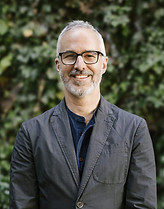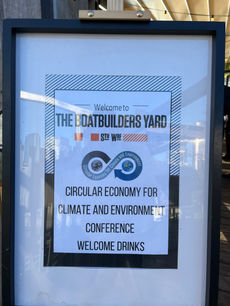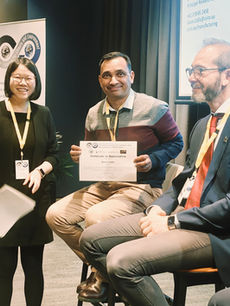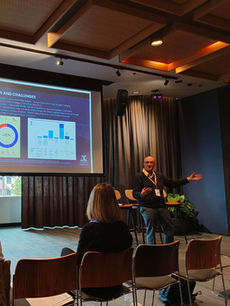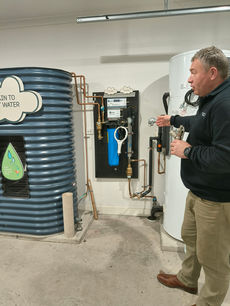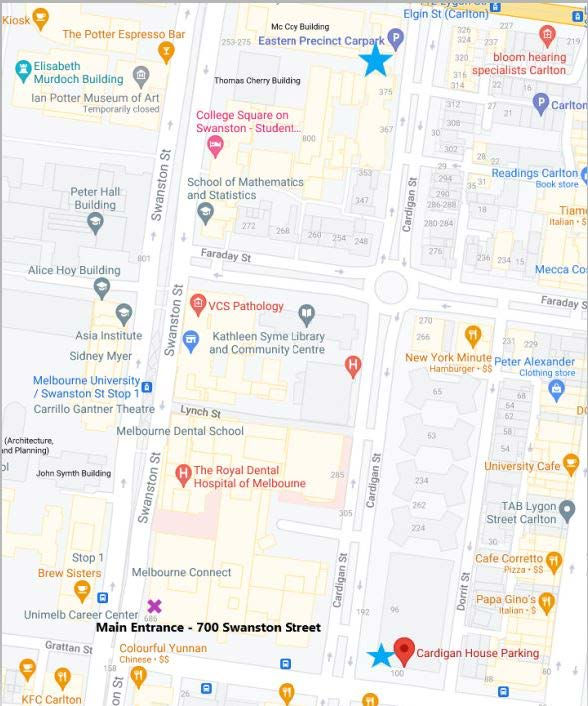

CECE 2025
Sep 22 - 24, 2025 : Melbourne Connect, Melbourne, Australia
Hosted by University of Melbourne
Organised by University of Technology Sydney, University of Melbourne and Victoria University

CECE stands as an annual international conference, spanning diverse disciplines from fundamental to applied research encompassing policies, technologies, and community education concerning the circular economy, climate change, and the environment. The conference's thematic scope extends across circular economy applications in water, energy, environment, waste, resource recovery, and climate change, among other pertinent areas. This conference aims to serve as a dynamic platform, bringing together researchers from academia, industries, government, and NGOs on a global scale. It facilitates the exchange of research findings, covering both foundational principles and practical applications. Notably, CECE aims to foster networks among researchers, nurturing international collaborations that drive innovation and progress in circular economy, climate change, and environmental research. Distinguished plenary and keynote speakers, representing academia, industry, and government, will grace the conference, providing valuable insights and perspectives. Conference also presents a unique opportunity for both industries, academics, or individuals to vie for recognition in various CECE Award categories. For those eager to participate, key conference dates are outlined below. Join us as we explore the frontiers of knowledge and collaboration in the pursuit of sustainable solutions for a circular economy, climate resilience, and environmental well-being.
Conference Chairs

A/Prof Stefano Freguia
University of Melbourne

Prof Sandra Kentish
University of Melbourne
Conference Themes
-
Plastic recycling
-
Circular water
-
Circular construction
-
Circular nutrients
-
Supply chain and governance
-
Battery recycling
-
Unintended consequences
-
Circular - Other
Conference Key dates
-
Abstract submission open: 03 March 2025
-
Abstract submission deadline: Closed
-
Abstract notification: 15 August 2025
-
Speaker registration deadline: Closed
-
Early bird registration deadline: Closed
-
Welcome reception: Sep 22, 2025
-
Conference: Sep 22 - 24, 2025
-
Technical tour: Sep 25, 2025
Important links
Conference Committees
Organising Committee
-
Prof Ho Kyong Shon - UTS
-
A/Prof Stefano Freguia - UoM
-
Prof Sandra Kentish - UoM
-
Prof Mikel Duke - VU
-
A/Prof Sherub Phuntsho - UTS
-
Dr Ibrahim El Saliby - ARC NiCE Hub, UTS
-
Dr Veera Koskue - UoM
-
Dr Helena Wang - UoM
-
Dr Franz Wohlgezogen - UoM
-
A/Prof Malindu Sandanayake - VU
-
A/Prof Ehsan Yaghoubi - VU
Scientific Advisory Committee
-
A/Prof Min Zheng - UNSW
-
Prof Qilin Wang - UTS
-
Ms Leonie Williams - Melbourne Water
-
A/Prof Adrian Oehmen - UQ
-
Dr Yanyan Zhao - CSIRO
-
A/Prof Jianfeng Mao - UoA
-
Dr. Parama Chakraborty Banerjee - Monash Uni
-
A/Prof Hamid Arandiyan - RMIT
-
Dr Shuaifei Zhao - Deakin Uni
-
Prof Prakash Singh - UoM
-
Dr Medo Pournader - UoM
-
Dr. Sara Long - RMIT
-
A/Prof Brad Clarke - UoM
-
Dr Yanni Bouras - VU
-
Dr Le Li - VU
-
Dr Robert Haigh - VU
-
Dr Massoud Sofi - UoM
-
A/Prof Nolene Byrne - Deakin Uni
-
Dr Alex Duan - UoM
-
A/Prof Pooria Pasbakhsh - UoM
Our Sponsors
Platinum
Nutrients in a Circular Economy Research Hub
Gold
ARC Research Hub for Smart Fertilisers
Silver

Metallium Ltd
Bronze

Incitec Pivot Fertilisers
Photo Gallery
Welcome reception 22.09.2025
Day 1 23.09.2025
Day 2 24.09.2025
Day 3 Technical Tours 25.09.2025



Plenary Speakers

Dr Ian Dagley, FTSE, FRACI, MAICD
Dr Ian Dagley is the Chief Executive Officer of the recently funded Solving Plastic Waste Cooperative Research Centre (SPW CRC). Prior to this appointment he was Chief of the Science Partnerships and Engagement Division of the Defence Science and Technology Group (DST), and had been the CEO of the CRC for Polymers for 21 years.
Ian has a PhD from the University of Melbourne, an MBA from RMIT, and is a Fellow of the Australian Academy of Technological Sciences and Engineering (ATSE).

Matthew Snell
Group Manager-Circular Economy, South East Water
Matt leads South East Water’s Circular Economy group, driving the organisation’s strategy to create a more sustainable and resilient water future. He is responsible for future-focused planning and delivery of assets across South East Water’s Water Recycling Plants, with a clear mandate to embed circular economy principles into infrastructure and operations. His work focuses on reducing carbon emissions, maximising alternative water use, advancing resource recovery, and developing viable long-term solutions that close the loop on waste.
Since joining South East Water in 2017, Matt has held a number of leadership roles. As part of the senior leadership team, he oversees a significant portfolio of treatment and resource recovery projects, accelerating the transition toward net zero emissions while ensuring reliable water services for a growing population in a changing climate.
Before South East Water, Matt worked as an engineer on some of Melbourne’s most significant infrastructure projects, including the Regional Rail Link and the $400 million upgrade of the Eastern Treatment Plant. This experience shaped his expertise in delivering large-scale, complex infrastructure with long-term community and environmental benefits.
Passionate about the future of the water sector, Matt is committed to mentoring the next generation of engineers and building meaningful career pathways in circular economy and water innovation. He is also a strong advocate for creating safe, diverse and inclusive workplaces where people are supported to thrive and contribute to sustainable outcomes.

Dr Sean O’Malley
Circular Economy Manager, Coles
Dr Sean O’Malley is a behavioural ecologist by training but has spent most of his early working life as a research and development manager in a range of fast-moving consumer goods companies in local and international roles. Following these roles Sean joined Planet Ark working across many areas of sustainability including waste, packaging, forestry, carbon and the Circular Economy with a focus on its measurement. Achievements whilst at Planet Ark include the creation of the Australasian Recycling Label (ARL), working on a critical paper on PFAS presence in packaging and a participating in the creation of a range of certification standards.
After a short period of consulting and working in the plant-based protein industry Sean joined Coles in 2023 as the Circular Economy Manager within the central sustainability team. The role encompasses a range of activities linked to the Circular Economy and Product Stewardship including working on food waste, in store used battery collection, the various container deposit schemes and working to resolve the challenge of soft plastic collection and recycling. Sean is a graduate of the CIRCO Circular Economy training programme.
Keynote Speakers

Dr Jeroen Wassenaar
Jeroen Wassenaar is the Head of Innovation at Cleanaway since January 2024. He is leading Cleanaway’s efforts to create circular and low carbon solutions for plastics and other recovered resources.
Prior to joining Cleanaway, he worked for more than 13 years in the petrochemical and plastics industries across Europe and Australia with TotalEnergies and Qenos in research and development, technical service, marketing, and project management. He holds a PhD in chemistry from the University of Amsterdam and his areas of expertise include catalysis, polymer chemistry, plastics sustainability, and the circular economy.
Jeroen is also the Treasurer of the Society of Plastics Engineers: Australia – New Zealand Section and a member of the rigid plastics material stewardship committee at the Australian Packaging Covenant Organisation (APCO).

Prof Minoo Naebe
Professor Minoo Naebe is the Deputy Director of the Centre for Sustainable Bioproducts (CSB) at Deakin University and the Founding Group Leader at Carbon Nexus within the Institute for Frontier Materials (IFM). She specializes in polymers and composites, with a strong focus on developing sustainable materials and processes to support transformative applications for a low-carbon economy. Professor Naebe has successfully led numerous collaborative projects with local and international industry partners across the transport, energy, and construction sectors. She is the Program Leader of the recently funded Solving Plastic Waste Cooperative Research Centre (SPW CRC) and her research has resulted in several commercial outcomes, including the establishment of a spin-off company at Deakin ManuFuture. Recognized globally for her contributions, Professor Naebe has been listed among the world’s top 2% most-cited scientists in Materials (Stanford Career Rankings) for five consecutive years (2020–2024).

Andrew Kiesel
Andrew is an associate geotechnical and pavement engineer at Tonkin + Taylor and has over 13 years' experience in a wide range of projects including roads, port facilities, sport centres, landfills, landslides, retaining structures, foundations, earthworks, and deep fill projects.
Throughout his career Andrew has had a focus on pavement design and analysis and has worked on a broad range of infrastructure projects including major freeway and arterial road upgrades, local government project and private client project. More recently Andrew has been leading pavement design packages on the Eastern Fwy Upgrade between Burke Road and Tram Road, which has a major focus on sustainability across all stages of the works.

Prof Deli Chen
Deli Chen is a Distinguished Professor of Soil and Environment Research in the School of Agriculture, Food and Ecosystem Sciences at the University of Melbourne and Director of the ARC Research Hub for Smart Fertilisers.
Deli’s research focuses on the nitrogen dynamics of plant-soil systems, efficiency of nitrogen fertiliser, animal waste management, mitigation of greenhouse gas emissions and remediation of environmental pollution. Deli’s research and reach was recognised by Clarivate in the top 1% internationally for his publication citations.
His research achievements have been recognised with the IFA Norman Borlaug Plant Nutrition Award (2024), as a lifetime Honorary Member of the International Union of Soil Sciences (2024), he is a Fellow of the Soil Science Society of America, Soil Science Australia and American Society of Agronomy. He was honoured as an Officer of the Order of Australia (AO) in 2024 for distinguished service to sustainable agriculture.

Simon Adams
Simon Adams is Chief Financial Officer and Company Secretary of Metallium Ltd. He brings more than 25 years of financial, corporate governance, and capital markets experience across ASX-listed companies in the resources and technology sectors. At Metallium, Simon oversees financial strategy, compliance and stakeholder engagement, supporting the company’s transformation from an exploration business into a U.S.-centric industrial technology leader. He has played a key role in structuring Metallium’s capital base, advancing strategic partnerships and positioning the company’s U.S. subsidiary, Flash Metals USA Inc., to scale its proprietary Flash Joule Heating (FJH) technology. Simon has had experience across a range of industries including upstream oil and gas, acquaculture, mineral exploration and hybrid energy management.

Dr Michael Thomas
Michael Thomas is the R&D Lead at Barwon Water. In this capacity he collaborates with research institutions and industry partners to advance projects that align with Barwon Water's Strategy 2030, focusing on areas such as the circular economy, emerging contaminants, smart networks, and climate change. Michael is also the Program Lead for the Intelligent Water Network's (IWN) Circular Economy initiative and co-chairs the Water Services Association of Australia's (WSAA) Research and Development Network. Prior to joining the water sector in 2017, Michael was an officer in the Australian Army, working in Signals Intelligence and other roles, including as a climate change adviser to the Department of Defence. Michael has completed two Masters degrees and has a Ph.D. in Political Science from UNSW.

Kerryn Lester-Smith
Kerryn Lester-Smith is the Research and Development Specialist at Barwon Water. In this capacity, she has supported innovative projects aimed at enhancing water management practices and circular economy initiatives. She focusses on advancing research translation and fostering strategic collaborations that address critical water-related challenges. She is also the Deputy Program Manager for the Circular Economy Program at Intelligent Water Networks (IWN), where she is co-hosting "The Ripple Effect," a podcast series exploring sustainable practices and innovations in water management.
She has a Masters in Health and Human Services Management and has also held senior roles in the social insurance sector across public sector agencies with experience in managing complex and evolving projects in fast paced environments.

Jason Cotton
Jason joined Intelligent Water Networks (IWN) in 2023 from Greater Western Water (GWW) where he was the Manager of Innovation and Continuous Improvement. Jason played a key role in the integration of GWW by leading the Operations Stream Integration.
Jason has an extensive innovation career in the Utilities Sector, small/medium enterprise and the education sector.He holds a Bachelor of Science (Hons) degree from Flinders University and a Certificate of Management from Mt Eliza Business School. Jason also studied under Gary Hamel at the Innovation Academy in the US.

Dr Gavin Collis
Principal Research Scientist, CSIRO
Gavin was appointed to CSIRO (Clayton, VIC) in 2006 as a Chemist and has worked across a variety of multi-disciplinary projects involving materials design for specific end-use applications. He has expertise in energy generation and storage applications. His has a broad interest in developing and using sustainable chemicals and green processes that allow the reuse, recycling and upcycling of materials. In recent years, he has focused on the challenges and opportunities around circular economies towards recycling lithium-ion batteries.
Gavin completed his undergraduate and PhD degrees at the University of Western Australia. He held positions at Worsley Alumina (Collie, WA), AGC-Woodwood Clyde Consultants (Perth, WA), Massey University (New Zealand) as a Post-doctoral Fellow, Lecturer and Assistant Director of the Nanomaterials Centre, and Los Alamos National Laboratory (New Mexico, USA). He has received prestigious awards (e.g. CSIRO OCE Julius Career and 2020 Churchill Fellowship (LIB Recycling)) and active member of the Royal Australian Chemical Institute (RACI), American Chemical Society (ACS) and the Minerals, Metal and Materials (TMS) Recycling & Environmental Technologies Committee (USA).

Prof Aleksandar N. Nikoloski
Professor Aleksandar (Aleks) Nikoloski is a renowned expert in extractive metallurgy and the Academic Chair at Murdoch University. With a PhD in Metallurgical Engineering and 30 years of teaching and research experience, he has also garnered several industry accolades, including the 2023 Vice Chancellor's Excellence in Research Distinguished and Sustained Achievement Award. Professor Nikoloski's work focuses on hydrometallurgy, applied electrochemistry, energy storage systems, and developing sustainable technologies for minerals processing. He leads the internationally recognised Hydrometallurgy Research Group and has published over 100 papers, produced several patents, and authored numerous industry reports. His research is instrumental in advancing the extraction and processing of lithium, vanadium, uranium, rare earths, base, and precious metals, and their industrial application.

Dr Minna Saaristo
Dr. Minna Saaristo is an ecotoxicologist with over 20 years of international experience in applying science-based approaches to assess the impacts and risks of contaminants of concern on the environment. She is a Principal Scientist in Ecological Risk and Emerging Contaminants at EPA Victoria and leads the Emerging Contaminants Program there. Since joining EPA in 2019, Dr. Saaristo has led projects assessing background concentrations of emerging contaminants in soil, freshwater, sediment, and biota across the state, uncovering their presence in influent and effluent waters, and investigating the uptake of contaminants of concern into edible crops. Prior to her work at EPA, Dr. Saaristo spent 10 years as a Research Fellow at Monash University. She is an internationally recognized behavioural ecotoxicologist whose multidisciplinary research has provided pivotal insights into how chemical pollutants affect sexual selection across multiple generations of wildlife.

Dr Roya Khalil
Roya is the Director of Research and Development and Stewardship at Incitec Pivot Fertilisers, where she leads a multidisciplinary team delivering innovation at the intersection of sustainable agriculture, circular economy, and climate resilience. Her current work spans enhanced efficiency fertilisers, nutrient recovery from animal and food waste, soil health, and greenhouse gas mitigation technologies —core pillars supporting the decarbonisation and sustainable agricultural systems.
With over two decades of experience in R&D and innovation leadership, Roya has held senior roles at organisations including Incitec Pivot Limited, Orora Packaging, Bega Cheese, Coca-Cola Amatil, SPC Ardmona, and Plantic Technologies. She has successfully led the development and commercialisation of several patented technologies, including bio-based and compostable packaging, nitrogen inhibitors, and organo-mineral fertilisers.
Roya is also a strong advocate for industry–academia collaboration. She serves as a Partner Investigator at the ARC Research Hub for Smart Fertilisers and Industry Advisor at the ARC Research Hub for Nutrients in the Circular Economy, both based at the University of Melbourne. Additionally, she is an Advisory Board Member at the Australian Graduate School of Engineering at UNSW and a former Chairwoman, Board Member, and Fellow of the Australasian Institute of Packaging (AIP).
Roya holds a PhD and a bachelor’s degree in chemical engineering, as well as an MBA with a specialisation in strategic marketing.

Django Seccombe
Django is an environmental engineer and change broker, committed to unlocking new enterprise and creating a more sustainable economy.
Django’s experience spans operations, planning, project development, strategy and policy development in the water sector. His current role focuses on establishing and embedding circular economy practice in Sydney Water and building collaborations across industry sectors in the rapidly growing Greater Sydney. Django’s current projects focus on the integration of our water, energy, food and waste systems.

Prof Dan Hill
Professor Dan Hill is Director of Melbourne School of Design, the graduate school in the Faculty of Architecture, Building and Planning at the University of Melbourne. A designer and urbanist, Dan's previous design leadership roles include the Swedish government’s innovation agency Vinnova in Stockholm, Arup in London and Sydney, Fabrica in Treviso, the Finnish Innovation Fund SITRA in Helsinki, and the UK's Future Cities Catapult and BBC in London. Dan is also a Visiting Professor of Practice at UCL's Institute for Innovation and Public Practice (IIPP) and a founder member of the Council on Urban Initiatives, a joint venture between UN HABITAT, LSE and UCL. He has also held roles of Professor at the Oslo School of Architecture and Design (AHO) and Visiting Professor at Design Academy Eindhoven. Dan was one of the inaugural Design Advocates for the Mayor of London and a Trustee of Participatory City Foundation and is now part of the Advisory Group of Open Systems Lab, advisory board of IIPP, and Scientific Committee for UrbanAI. He is on the editorial boards of Future Observatory Journal and She Ji: The Journal of Design, Economics, and Innovation. Dan is the author of the books 'Dark Matter & Trojan Horses' (Strelka Press, 2012) and 'Designing missions' (Vinnova, 2022), amongst others.

Dr Matthew Askeland
Matthew Askeland is an environmental professional engaged in the contaminated land, resource recovery, and circular economy sectors specialising in the management of emerging contaminants. Matt previously led ADE Consulting Group's Victorian Environment Practice which included a specialist Business Unit, focused on emerging contaminants.
Matt enjoys solving problems, challenging conventional approaches, and being generally disruptive.

Lena Jungbluth
Lena is an applied behaviour change researcher with over ten years’ experience working at BehaviourWorks Australia at Monash University. She mainly works on environmental topics and has been involved in many projects aiming to improve pro-environmental behaviours, attitudes and knowledge. Lena’s key research interest is hospital sustainability, with a particular focus on waste management. Lena is about to complete a PhD at the Monash Sustainable Development Institute looking at ways to improve recycling at hospitals by drawing on behavioural science.
Other examples of Lena’s work include mapping the connections between responsible consumption behaviours, exploring facilitators and barriers to responsible household chemicals and e-waste disposal, improving biosecurity risk preparedness among aquaculture farmers, and understanding farmers’ opinions on energy efficiency and riparian land management.

Dr George Panas
After 25 years of senior management experience, George recently transitioned to academia, completing a PhD on sustainable grocery eCommerce supply chains. He is now Enterprise Fellow, and Director of Engagement in the Department of Management & Marketing at the University of Melbourne. He lectures in both undergraduate and postgraduate supply chain management subjects. In his teaching and research, George draws extensively on his own personal work experience, where he held functional leadership roles at BHP, GlaxoSmithKline, Coles Group, Australia Post, and Australia's national broadband network (nbn). George is passionate about ensuring academic programs and research engage closely with industry, ensuring both graduates and research output can best meet the needs of organisations and society. His current research interests include sustainable supply chains, investigating whether greater disclosure of packaging to be used by retailers in the eCommerce last mile can impact consumer purchasing decisions and subsequent waste generation; and ethical supply chain sourcing, where he has published in leading operations management academic journals on the topic of managerial decision-making and modern slavery in global supply chains.
Getting to the Melbourne Connect Precinct
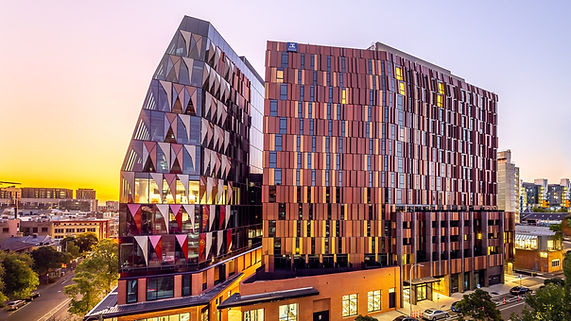
Technical tours
Tour 1: Cleanaway – Circular Plastics Australia site
Located in Laverton, Victoria, this state-of-the-art facility processes more than 20,000 tonnes of HDPE and PP (or the equivalent of over half a billion plastic milk bottles and food tubs) into recycled resins used for food, beverage, and industrial packaging.

Schedule:
-
Depart from University of Melbourne: 8.15am sharp
-
Tour Starts: 9am
-
Tour Ends: 11am
-
Return to University of Melbourne by 12 noon
-
Please wear long trousers and sleeves. If possible, wear steel capped safety shoes, otherwise these will be provided on site.
-
Minimum Participants: 5, Maximum Participants: 30
Tour 2: Aquarevo demonstration house – South East Water
Aquarevo is South East Water’s flagship circular water development, designed to reduce potable water use by up to 70% through a closed-loop system. Each home is supplied with drinking water, harvested rainwater, and Class A recycled water treated on site at a pioneering estate-scale water recycling plant. Smart systems such as TankTalk® (which pre-releases rainwater before storms), OneBox® (a digital water and energy hub), and rain-to-hot water treatment integrate water use, energy efficiency, and stormwater management. Together, these features cut stormwater runoff and nutrient loads, improve urban greening, and showcase a replicable model for sustainable, water-sensitive communities.

Schedule:
-
Depart from University of Melbourne: 8.15am sharp
-
Tour Starts: 10am
-
Tour Ends: 11am
-
Return to University of Melbourne by 12:30 pm
-
Please wear long trousers and sleeves. no PPE is required to attend Aquarevo house
-
Minimum Participants: 5, Maximum Participants: 20
Call for Abstract
Call for abstract is now open!
Please use the abstract template provided below and submit your abstract via the online form.
If you have any inquiries, feel free to contact us at info@nicecece.org.
Conference Key dates
-
Abstract submission open: 03 March 2025
-
Abstract submission deadline: 30 June 2025 Extended to 28 July 2025 , Closed
-
Abstract notification: 15 August 2025
-
Speaker registration deadline: 30 August 2025 Extended to 6 September 2025
-
Early bird registration deadline: 30 August 2025 Extended to 6 September 2025
-
Welcome reception: Sep 22, 2025
-
Conference: Sep 22 - 24, 2025
-
Technical tour: Sep 25, 2025
Editorial Guidelines
-
Abstracts must be written in English
-
Authors can submit a maximum of two abstracts per primary author, who must then become a registered attendee (one oral and one poster)
-
Authors may present current research or reviews of previous research
-
Authors can choose a maximum of 4 themes from those listed in the table below including the preferred theme (P)
-
Abstract may not be longer than 500 words and must follow the abstract template format
-
Authors must ensure that the content provided is not subject to copyright
-
Accepted abstracts will be published in the CECE 2025 Abstract Booklet (open access publication)
-
Presentation (abstract) title in English
-
Authors and their affiliations, underline the presenter’s name and add their email
-
A brief biography of the presenter (max 300 words)
-
Abstract text in English (max 500 words)
-
Conference themes (tick max 4) and indicate the preferred theme (P), see example below
-
Images and tables are not required
-
Save the file in .doc or .docx or .pdf format before submission
-
A list of “bibliographical references” is not required
Conference themes including the preferred theme
☐ Plastic recycling
☒ Circular water (P)
☐ Circular construction
☒ Circular nutrients
☐ Battery recycling
☐ Supply chain and governance
☒ Unintended consequences
☒ Circular - other

CECE Conference Awards
Melbourne, 2025
Best Oral Presentation, and Best Poster Awards
The winners of the Best Oral Presentation, and Best Poster Awards will be selected based on the quality of the respective presentation, or poster. The judging criteria will focus on factors such as the clarity and coherence of the content, the depth of research, the effectiveness of the communication, and the overall visual appeal. The evaluation process will aim to recognise outstanding work and highlight excellence in research, presentation skills, and visual communication.

Instructions for presenters
To ensure the smooth functioning of the CECE 2025 conference, please take note of the following important instructions:
-
Review the Program: Please check the program (click here) and confirm the day and time of your session.
-
Upload Your Presentation: During the tea or lunch break before your session, please check in at your session room and upload your presentation onto the Lectern PC using your USB drive. Our student volunteers will be available to assist with this process.
-
Use the Lectern PC: All presentations must be made using the Lectern PC to avoid delays. Please ensure your slides are uploaded ahead of time.
-
Presentation Timing:
-
Regular and invited speakers are allocated 15 minutes (12 minutes for the presentation + 3 minutes for Q&A).
-
Keynote speakers have 20 minutes (15 minutes for the presentation + 5 minutes for Q&A).
-
-
Giving Your Presentation: Use the Lectern PC to share your screen, and we encourage you to use the laser pointer during your talk.
-
Time Management: Please adhere to your allocated time, including Q&A. A volunteer will give you a 2-minute warning before your time ends.
To ensure the smooth functioning of the CECE 2025 conference, please take note of the following important instructions:
Create and Print Your Poster
Successful posters are visually engaging, summarizing your research in a way that highlights key points. The presenter will elaborate on the details during the session and can complement the poster with a preview video. Avoid simply enlarging your manuscript, as this is not an effective poster format.
Your poster should include:
-
The paper title and all author names at the top.
-
A clear and logical sequence of a brief introduction, objectives, experimental details, conclusions, and references.
-
Captions and explanations for each graph, image, and table.
Size, Fonts, and Colours:
-
The maximum poster size is A0 (841mm x 1190mm or 33in x 47in), portrait layout.
-
Use legible fonts with these minimum sizes:
-
Title: 36-point font
-
Author list: 25-point font
-
Body text: 15-point font, double-spaced.
-
-
Choose high-contrast colours and avoid red-green combinations for colour-blind accessibility.
-
Print a high-resolution copy for the presentation, adhering to the size limit (84cm x 119cm).

Thank you for agreeing to chair a session at CECE 2025. Below is some guidance to help ensure the sessions run smoothly:
-
Review the Program: Please refer to the program (click here) and confirm the date and time of your session.
-
Arrive Early: Be present at your session at least 15 minutes beforehand to coordinate with your co-chair and the student volunteer.
-
Check Speaker Presence: Before the session begins, ensure that all speakers are in the room and have uploaded their presentations.
-
Equipment Check: Confirm that a laser pointer is available in the room.
-
Speaker Introductions: A printed copy of the session program will be available in the room and at the entrance. Introduce each speaker by name, affiliation, talk title, and their category (such as student or Early Career Researcher). Lengthy introductions are not necessary.
-
Token/Gift for Speakers: Please ensure you collect the token or gift for plenary, keynote, or invited speakers from the student volunteer or staff member to present at the end of the talk.
-
Time Allocation:
-
20 minutes for Keynote Speakers (15 minutes for the talk, 5 minutes for Q&A)
-
15 minutes for Invited and Regular Speakers (12 minutes for the talk, 3 minutes for Q&A)
-
-
Student/ECR Speaker Evaluation: You will receive a marking sheet to rate student and ECR (Early Career Researcher) speakers. The top two will be awarded the Best Oral Award and the Highly Recommended Oral Award.
-
Time Management: Ensure that speakers stick to their allotted time. Give a 2-minute warning as their time comes to a close.
-
Q&A Assistance: The co-chair or student volunteer will assist by passing the microphone to those asking questions.
-
Closing: Present the token to plenary, keynote, or invited speakers after the Q&A session concludes.
Register for CECE 2025
Early bird
Deadline : extended to 6 September 2025
Full registration
& Gala dinner
$800
Student registration
& Gala dinner
$300
Single day registration
$500
Standard
Full registration
& Gala dinner
$1100
Student registration
& Gala dinner
$500
Single day registration
$700
Gala dinner only
$120
Technical tours
$50
*All the registration fees include GST.

Sponsorship
Click here for Sponsorship prospectus.
For sponsorship opportunity, please contact the CECE organiser, info@nicecece.org or A/Prof. Stefano Freguia, stefano.freguia@unimelb.edu.au
-
Platinum sponsor: >$5,000 (2 free registrations)
-
Gold sponsor: 3,000 (1 free registration)
-
Silver sponsor: 2,000
-
Bronze sponsor: 1,000
Contact us
If you have any inquiry, do not hesitate to contact us by emails below.
-
Conference Email: info@nicecece.org
-
Dr Ibrahim El Saliby: Ibrahim.ElSaliby@uts.edu.au
-
Dr Veera Koskue: veera.koskue@unimelb.edu.au











